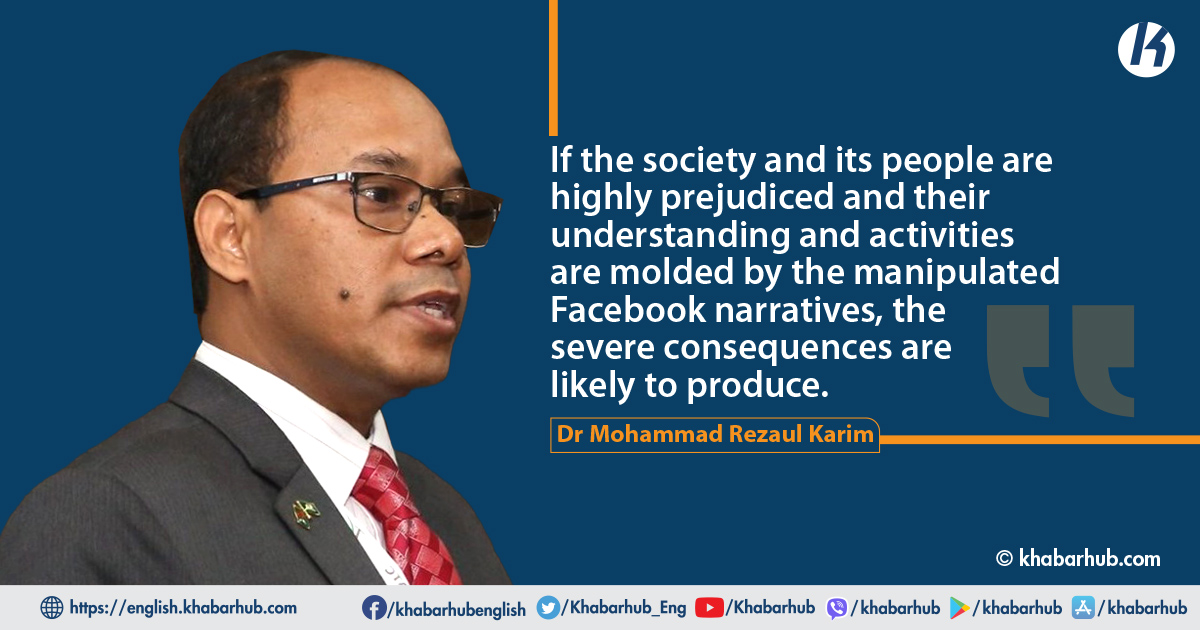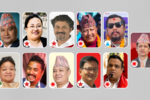The Oxford English Dictionary defines epistemology as the theory or science of method and ground of knowledge, which is a core area of philosophical study including the sources and limits, rationality and justification of knowledge.
Knowledge is the interaction and effective utilization of data, information, texts, images, artifacts and experiences for individual and social development.
The higher level of knowledge capable of addressing the issues in threats and crisis moments is the wisdom that is created from the experiences gained over the years.
It is argued that the best utilization of knowledge and wisdom contributes to sustainable development. Facebook, a popular social media, creates the formation of knowledge, reshapes the understanding of individuals, and influences society.
The starting of Facebook comes as a means of communicating with friends and sharing experiences. However, it gradually widens the area of usage from the micro level to the macro level when it is allowed to use for organizational purposes.
When the new technology emerges, it attracts people and creates a craze among them particularly among the young generation who accepts and adopts it quickly. Facebook serves as a fascinating means to publicize individual thoughts, views, and achievements.
The faster the speed of spreading knowledge depends on the importance and newness of the issue and its contents. Negative, different, and innovative contents quickly attract others and influence viewers while a positive and higher level of knowledge has less spreading capacity.
It is noticed that personal views and understanding, community perceptions, individual and political ideology, religious norms and values, state activities, and development paradigms are easily and frequently shared. The believers strongly promote their ideology and influence followers and viewers.
There are some groups and social activists who also do the same to contribute to societal development and influence the community.
During the pandemic, some philanthropic organizations took humane initiatives to feed poor and vulnerable people. Some individuals and groups raised funds and contributed them. This significantly serves as the promotion of the good side of the human being.
Political parties use this media for circulating their views and ideology so that mass people can understand their activities and react accordingly.
At one point, Facebook has become an important platform for broadcasting political activities. Social and religious activists and different social institutions also use the Facebook platform to disseminate their views to shape the understanding of the critical mass.
Although Facebook was initially a means of communication among friends, it is organizationally accepted and used for exhibiting development activities of the country.
It is a strong media working in a parallel way like other print and electronic media. Compared with the circulation and reaching capacity to the general mass Facebook is stronger than any other media these days as it does not limit to time or space, or geographical locations.
The contents either personal, social, political, or pertaining to state activities highly influence people’s beliefs and embolden them to act accordingly.
Based on the contents what they see creates knowledge, as they understand usually as right and acceptable. Viewers are intrinsically motivated by the information that they receive and nourish in their minds.
Theoretically knowledge creation starts from socialization and gradually exercises in externalization, adopts in internalization and finally exhibits in combination.
The first one denotes the epistemological dimension as of social interaction between tacit and explicit knowledge where knowledge is converted from one type to another type and new knowledge is created.
Facebook narratives enhance much as this level. When people share experiences and utilize them at the organizational level through transmitting explicit to explicit knowledge, it creates the ontological dimension.
After internalization, the process continues at a new level and contributes to the spiraling of knowledge creation. The total process amplifies and crystalizes an individual’s knowledge and gradually moves to the next level.
Knowledge creation through Facebook follows several steps such as circulation of information, absorbing the crux of the contents through viewing and reading, understanding the contents and context, aligning with own knowledge and theoretical underpinnings, realizing the essence, and finally circulating among other friends and families.
It is innate in the philosophy of knowledge that it helps understand and realize the right or wrong notion and is effectively utilized for personal & social development and broadly for a country’s development. Facebook narratives contribute to shaping the level of understanding of users through content.
The faster the speed of spreading knowledge depends on the importance and newness of the issue and its contents. Negative, different, and innovative contents quickly attract others and influence viewers while a positive and higher level of knowledge has less spreading capacity.
Since Facebook is widely used irrespective of all levels, it reaches all quickly and greatly influences the general mass to act as an activist for social change. A total of 2.9 billion Facebook users are the highest number likening to all other social media popularly used by people.
Facebook serves as a big platform for sharing knowledge for study purposes, building social awareness, exchanging valuable information, showing creativity, and doing business that positively helps develop individuals, society, and the state.
The traditional approach of learning through reading books has been quickly replaced by social media.
However, Facebook has also brought remarkable negative effects such as social alienation, narcissism, propaganda, extremism, unproductive time spending, and so on that ultimately affect an individual’s mental faculty and social development.
More importantly, young generation students in particular are abusively influenced which is a huge loss of human resources as well as the society.
It is innate in the philosophy of knowledge that it helps understand and realize the right or wrong notion and is effectively utilized for personal & social development and broadly for a country’s development. Facebook narratives contribute to shaping the level of understanding of users through content.
If the society and its people are highly prejudiced and their understanding and activities are molded by the manipulated Facebook narratives, the severe consequences are likely to produce. It demands stringent measures to be taken more technically and technologically to control abusive content without hampering personal freedom.









Comment